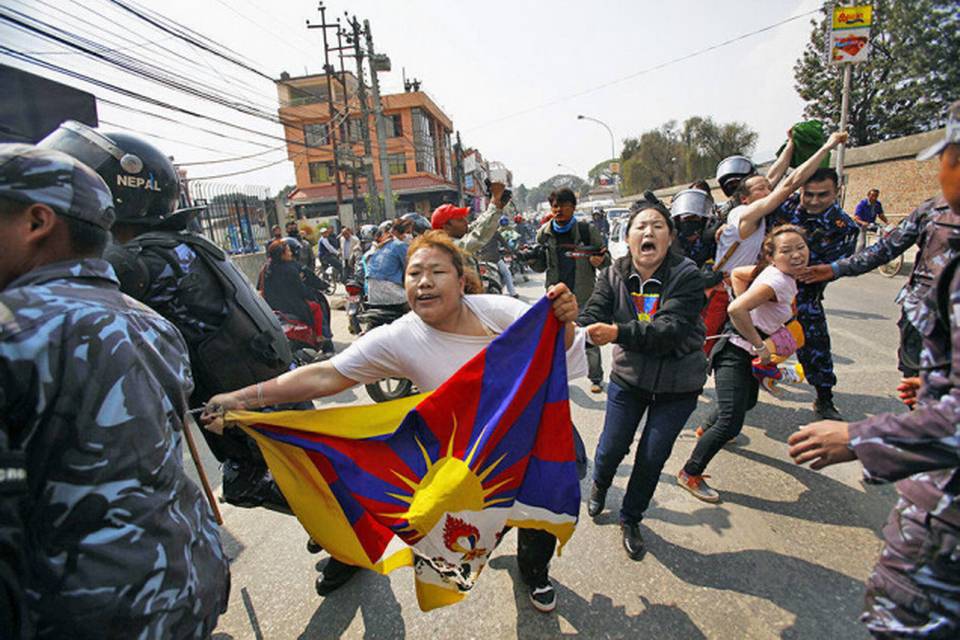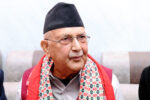LHASA: while there is a spate of incidents of self-immolations by Tibetans in protest against the Chinese colonial rule, a complete silence among world governments puts a question mark on the global community’s commitment to human rights and the ‘rule of law’.
Tibet Press reported that March 27 this year marked the 160th known case of self-immolation by Tibetan youths, monks and nuns, reflecting the ever-growing anger of ordinary Tibetans against the Chinese colonial rule.
Taphun, an 81-year old Tibetan, self-immolated for the Tibetan cause in Kirti, Ngaba County. He self-immolated in front of the public security bureau office outside near the Kirti monastery compound which was built in 2008 for the surveillance of the monastery area.
The Tibetans succeeded in daring acts of self-immolation but failed to raise the conscience of a world community that takes pride in claiming to be living in the most democratic and justice-loving era of human history. Exactly a month earlier on February 27 this year, Tsewang Norbu, a 25-year-old popular Tibetan singer, too had taken his life by self-immolating in front of the historic Potala Palace in Lhasa, the capital of Tibet.
Like Taphun, he too was shouting ‘China Quit Tibet’ and ‘May Dalai Lama return to Tibet’ as the Chinese agents of the Public Security Bureau (PSB), who are omnipresent in uniforms and plainclothes in every nook and corner of Tibet, pounced upon his burning body and whisked him away, reported Tibetan Press.
Initially, the Chinese government and media maintained a stoic silence over these events as the movement of information and people in both towns remained frozen for days together.
According to Radio Free Asia (RFA), an international broadcaster from Washington DC in the US, the Chinese authorities refused to share any information on both of these events. They even refused to confirm that any such event had happened at all. But the details, slowly filtering out of Tibet in the following days have confirmed that both protesters later died under police custody.
Tibetan Diaspora and the International observers who have been closely following the developments inside Tibet are of the opinion that both these incidents reflect how the Chinese security apparatus has left no scope for any collective expression of anger and desperation by the Tibetan people against what they are going through under Chinese occupation since 1951, reported Tibet Press. Reacting to these two events in Tibet Gonpo Dhundup, President of Tibetan Youth Congress (TYC) said, “The presence of millions of CCTV cameras and security agents in today’s Tibet has left no chance for ordinary Tibetan people to collect at a place and jointly express their unhappiness against the suppressive Chinese colonial rule.
Digital vigilance through the compulsory ‘smart card’ which every Tibetan is supposed to carry with him or her and the use of most modern techniques like artificial intelligence has only made it worse for the Tibetan masses. That is why we are noticing a spate of individual actions like self-immolation after the Beijing Olympics.”
The sudden spurt in self-immolations started in 2009 after China had concluded the 2008-Olympics and the security system of the Chinese Communist Party had started revising its strategy to contain Tibetan public resistance against their Chinese masters.
At the time of pitching for the 2008-Olympics by China, there was an international uproar against the dismal Chinese human rights record within China and its colonies like Tibet, Xinjiang and South Mongolia.
However, China has only deepened its security grip and digital surveillance system over its occupied regions of Tibet, Xinjiang, South Mongolia – even Hong Kong – further after the 2008 Beijing Olympics. (ANI)









Comment